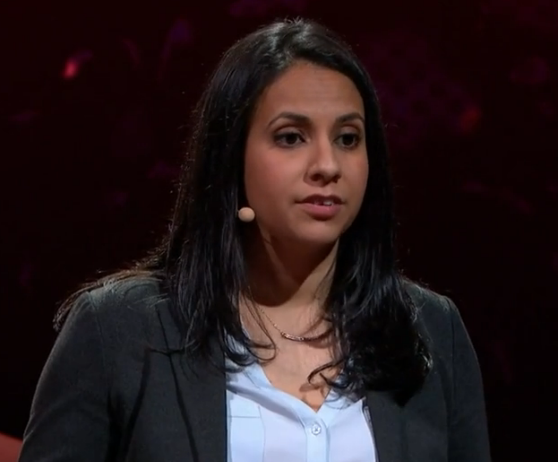It's the idea of permission-less innovation.
這個想法是一個不需要授予權限的革新。
The Internet caused an explosion of innovation, because it was built upon an open architecture.
互聯網促成了改革爆炸,因為它是建立在一個開發的空間架構。
And just like the Internet changed the way we communicate,
正如互聯網改變了我們的交流方式,
programmable money is going to change the way we pay, allocate and decide on value.
程序化貨幣將會改變我們的支付方式,對價值的分配以及確定。
So what kind of world does programmable money create?
所以程序化貨幣能建立一個怎樣的世界?
Imagine a world where I can rent out my healthcare data to a pharmaceutical company.
想象一下這樣的世界,我可以把我的健康數據租用給制藥公司。

They can run large-scale data analysis and provide me with a cryptographic proof
他們能進行基于大范圍的數據分析,隨后我將會收到一個驗證密碼,
that shows they're only using my data in a way that we agreed.
只有通過我的驗證,制藥公司才有權使用我的數據。
And they can pay me for what they find out.
如果他們發現了什么有用的信息,我會獲得相應的報酬。
Instead of signing up for streaming services and getting a cable bill,
我們將不用先去申請流媒體服務,然后交納有線電視費,
what if my television analyzed my watching habits and recommended well-priced content that fit within my budget that I would enjoy?
取而代之的是,電視程序能分析出我的喜好,推薦一個價位合適又符合我喜好的節目目錄。
Imagine an Internet without ads, because instead of paying with our attention when we view content, we just pay.
想象一下沒有任何廣告的網絡,我們不再需要關注于節目目錄,我們只要付錢就可以。
Interestingly, things like micro-payments are actually going to change the way security works in our world,
有趣的是,類似微支付的方式,能改變現在所使用的安全保障方式,
because once we're better able to allocate value, people will use their money and their energies for more constructive things.
因為一旦我們能更好的分配價值,我們會把金錢和能源都利用在更加有建設性的事情上。
If it cost a fraction of a cent to send an email, would we still have spam?
如果發送一封郵件需要支付零點幾美分,那還會有垃圾郵件嗎?











